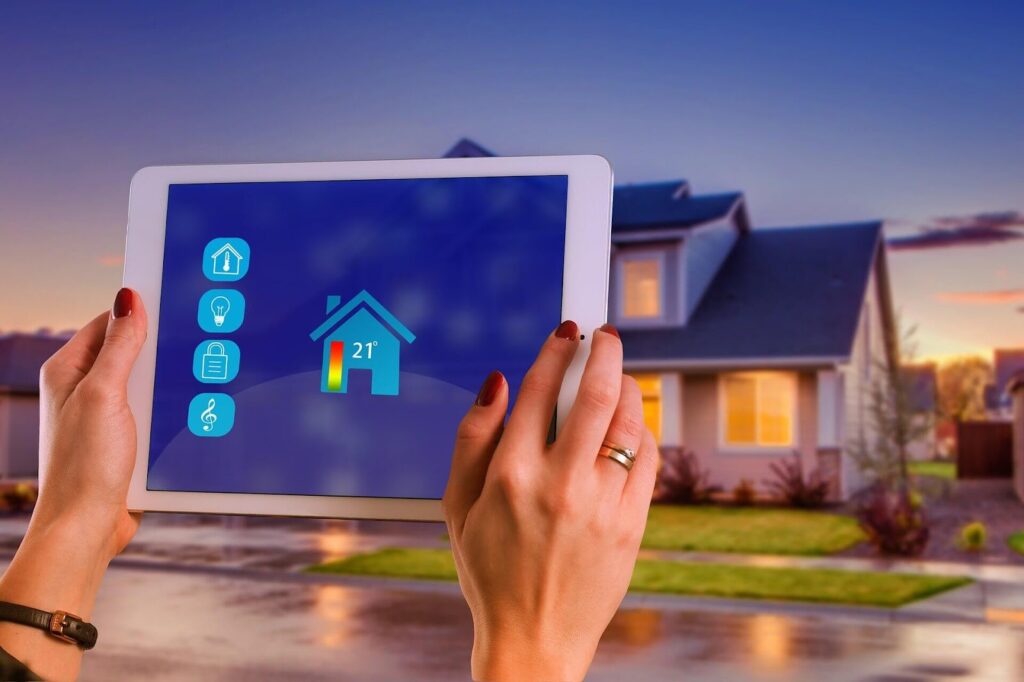IoT Security Issues and Solutions: Protecting Your Smart Home with VPNs
The Internet of Things (IoT) has expanded quickly and with unmatched ease. Our houses now have a seamless integration of IoT devices, from voice-activated virtual assistants who manage our daily duties to smart thermostats that change the temperature based on our preferences. This ease does, however, come at a cost: security flaws that could jeopardize our personal information and privacy. The difficulties with IoT security will be discussed in this article, along with how Virtual Private Networks (VPNs) can be a potent defense for your smart home.
Recognizing IoT Security Issues
Although clever, smart home technology is not impervious to security risks. These devices frequently have inconsistent security protocols, which leaves them open to a number of flaws. Unpatched software and weak or default passwords open doors for fraudsters to exploit. Furthermore, the enormous amounts of data that IoT devices gather give rise to serious privacy problems. Concerning dangers include unauthorized access and the misuse of personal information.
How Does a VPN Work? What Is It?
Your internet actions are protected via a VPN, or virtual private network. It creates a safe, encrypted connection between your device and the internet, guaranteeing the privacy of your data and the anonymity of your online identity. VPNs operate by encrypting the data sent between your device and the server and redirecting your internet traffic through a distant server. Through this procedure, your data is shielded from hackers, ISPs, and governmental organizations.
Surfshark is a reputable VPN company that provides in-depth information on VPNs. Visit their instructional website on VPN to find out more about VPNs and how they operate.
Using VPNs to Protect Your Smart Home
The vulnerabilities present in smart home devices can be effectively protected against by including VPNs in IoT security. Your data is completely encrypted when you use a VPN on your smart home network, making it nearly impossible for anyone to intercept and decode. This is especially important when using a VPN to access your smart devices remotely because it protects your communication from prying eyes.
It’s simpler than you would imagine to set up a VPN for your smart home. Choose a reliable VPN provider that offers strong encryption, fast connections, and device compatibility. On your devices, install the VPN software, then follow the setup instructions. Your intelligent home network will benefit from improved security and privacy once it is configured.
Factors to Think About When Selecting the Best VPN
When selecting a VPN provider for your smart home, several criteria are taken into consideration. It’s critical to take into account the VPN’s level of security, compatibility with different devices, and effect on the performance of your network. In order to keep your smart home protected without compromising speed or usability, several VPN providers offer particular functions for IoT devices.
If you’re looking for a list of well-known VPN providers renowned for their efficiency in IoT security, check out resources like this guide. While VPNs are effective tools, they do have some restrictions and disadvantages, such as the potential for speed degradation or compatibility concerns.
Enhanced IoT Security Best Practices
While VPNs are essential for protecting your smart home, they are only a small part of a larger security plan. Consider using these best practices to further improve IoT security:
Your IoT devices should be updated and patched frequently to prevent known vulnerabilities.
Use complicated and one-of-a-kind passwords for each device to practice robust password management.
Create network segments to separate IoT devices from important systems.
Wherever possible, use two-factor authentication (2FA) to offer an additional degree of security.
Keep an eye on device and network activities for any indications of unwanted access.
Conclusion: Your Smart Home Will Have a Secure Future.
IoT gadgets have transformed how we engage with our environment in a world where connectivity is king. But this ease shouldn’t come at the expense of our privacy and security. We can establish a secure environment for our smart homes by being aware of the difficulties presented by IoT security flaws and embracing solutions like VPNs. In order to profit from the IoT era’s advantages without compromising security, it is our obligation to adjust and strengthen our defenses as technology continues to advance.

